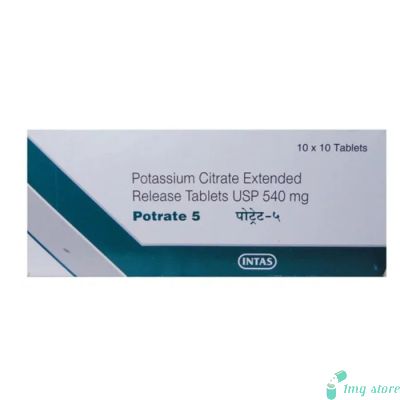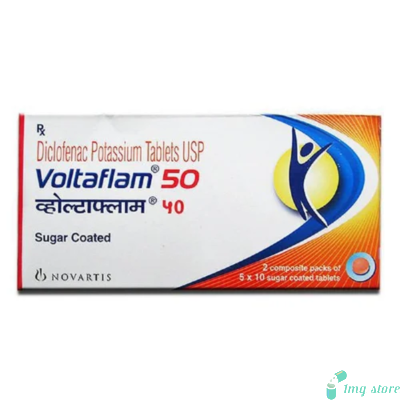Gushout Tablet (Potassium magnesium citrate)
Potassium magnesium citrate is a medication commonly known by the brand name "Gushout." It is a combination of potassium citrate and magnesium citrate, two essential minerals that play crucial roles in various bodily functions.
Introduction of Gushout Tablet (Potassium magnesium citrate)
Potassium magnesium citrate is a medication commonly known by the brand name "Gushout." It is a combination of potassium citrate and magnesium citrate, two essential minerals that play crucial roles in various bodily functions. This medication is available in tablet form and is primarily used to manage kidney stone formation and urinary tract health. However, there is growing interest in its potential benefits for anxiety, sleep, and as a dietary supplement.
Dosage Information:
The dosage of potassium magnesium citrate tablets (Gushout) can vary depending on the specific condition being treated. It is important to follow the instructions provided by your healthcare professional or the dosage recommendations on the product label. Generally, the recommended dosage for Kidney stone prevention is around 2 tablets per day, taken with meals or as directed by your doctor. However, individual dosages may differ, so it is crucial to consult with a healthcare provider for personalized dosage guidance.
Potassium Magnesium Citrate for Anxiety:
While the primary use of potassium magnesium citrate is for kidney stone prevention and urinary tract health, some individuals believe it may have benefits for anxiety. However, it's important to note that there is limited scientific research specifically addressing the use of this medication for anxiety. If you are experiencing anxiety, it is recommended to consult with a healthcare professional who can provide appropriate guidance and suggest more established treatments for anxiety.
Potassium Magnesium Citrate for Sleep:
Similarly, there is limited scientific evidence supporting the use of potassium magnesium citrate for sleep-related issues. While magnesium is known to have a relaxing effect on the body and can potentially aid in sleep, more research is needed to determine the specific impact of potassium magnesium citrate on sleep. If you are struggling with sleep problems, it is advisable to seek guidance from a healthcare provider who can recommend evidence-based treatments for sleep disorders.
Potassium Magnesium Citrate Supplement:
In addition to its prescribed medical uses, potassium magnesium citrate tablets can also be taken as a dietary supplement. These tablets provide a convenient way to supplement the body's potassium and magnesium levels, especially for individuals with dietary deficiencies or those who may require additional intake due to certain medical conditions. However, it is essential to consult with a healthcare professional before starting any new supplement to ensure appropriate dosage and to rule out any potential interactions with other medications or medical conditions.
In summary, potassium magnesium citrate tablets (Gushout) are primarily used for kidney stone prevention and urinary tract health. While some individuals speculate about its potential benefits for anxiety and sleep, scientific evidence supporting these claims is limited. As with any medication or supplement, it is important to consult with a healthcare professional for proper guidance and to discuss any concerns or potential interactions before starting potassium magnesium citrate.
When taking potassium magnesium citrate tablets (Gushout), it is important to consider the following precautions:
Allergies: If you have a known allergy or hypersensitivity to potassium citrate, magnesium citrate, or any other ingredients in the medication, you should avoid its use. It is advisable to thoroughly review the product label and consult with a healthcare professional to ensure safety.
Medical Conditions: Inform your healthcare provider about any pre-existing medical conditions, such as kidney problems, heart disease, high blood pressure, or any electrolyte imbalances. They will evaluate the suitability of using potassium magnesium citrate and provide appropriate guidance.
Pregnancy and Breastfeeding: The safety of potassium magnesium citrate during pregnancy and breastfeeding has not been well-established. It is crucial to consult with a healthcare professional to assess the potential risks and benefits before using this medication.
Children and Elderly: Special caution should be exercised when using potassium magnesium citrate in children and elderly individuals, as they may have specific dosage requirements or increased sensitivity to certain medications. It is best to seek guidance from a healthcare professional to ensure appropriate use.
Dehydration: Potassium magnesium citrate can increase urine output. It is important to maintain adequate fluid intake to prevent dehydration, especially in hot weather or during physical activity.
Primary Application of Gushout Tablet (Potassium magnesium citrate)
Kidney Stone Prevention: Potassium magnesium citrate is commonly prescribed to prevent the formation of certain types of kidney stones. It works by alkalinizing the urine, making it less acidic and reducing the risk of stone formation. The citrate in the medication helps to bind calcium, preventing it from forming crystals that can lead to stones.
Urinary Tract Health: Potassium magnesium citrate can also promote urinary tract health by preventing the accumulation of crystals and minerals that can lead to urinary tract infections and other urinary tract issues. By maintaining a proper pH balance in the urine, this medication can support overall urinary health.
Potassium and Magnesium Supplementation: Potassium and magnesium are essential minerals required for numerous bodily functions. Potassium is involved in maintaining proper heart function, nerve transmission, and muscle contraction, while magnesium plays a role in energy production, muscle, and nerve function, and maintaining healthy bones. Potassium magnesium citrate tablets can serve as a dietary supplement to help fulfill the body's daily requirements for these minerals.
While potassium magnesium citrate is generally well-tolerated, it may cause some side effects in certain individuals.
Common side effects include:
Gastrointestinal Issues: These can include stomach upset, nausea, vomiting, diarrhea, and abdominal pain. Taking the medication with meals or reducing the dosage may help alleviate these symptoms. If they persist or worsen, it is important to consult with a healthcare professional.
Electrolyte Imbalances: Potassium magnesium citrate can affect electrolyte levels in the body. Excessive potassium levels (hyperkalemia) or magnesium levels (hypermagnesemia) can lead to various symptoms, such as irregular heartbeat, muscle weakness, confusion, and fatigue. Regular monitoring of electrolyte levels is necessary, especially in individuals with underlying kidney problems or those taking other medications that affect electrolytes.
Allergic Reactions: Although rare, some individuals may experience allergic reactions to potassium magnesium citrate. Seek immediate medical attention if you develop symptoms such as rash, itching, swelling, dizziness, or difficulty breathing.
Can potassium magnesium citrate tablets (Gushout) be taken on an empty stomach?
Answer: It is generally recommended to take potassium magnesium citrate tablets with meals to minimize the risk of gastrointestinal side effects. Taking them on an empty stomach may increase the likelihood of experiencing stomach upset or nausea.
Can potassium magnesium citrate tablets interact with other medications?
Answer: Yes, potassium magnesium citrate can interact with certain medications. It is important to inform your healthcare provider about all the medications you are taking, including prescription drugs, over-the-counter medications, and supplements. They can evaluate potential interactions and make dosage adjustments if necessary.
How long does it take for potassium magnesium citrate to show its effects in preventing kidney stones?
Answer: The time it takes for potassium magnesium citrate to show its effects in preventing kidney stones can vary. It is important to follow your healthcare provider's instructions regarding dosage and duration of treatment. It may take several weeks or even months to see the full benefits, as the medication works by gradually altering urine chemistry to reduce the risk of stone formation.
Are there any dietary restrictions while taking potassium magnesium citrate tablets?
Answer: There are no specific dietary restrictions associated with potassium magnesium citrate tablets. However, it is generally recommended to maintain a well-balanced diet that supports overall kidney health. Your healthcare provider may provide specific dietary recommendations based on your individual needs and the type of kidney stones you are prone to.
Can potassium magnesium citrate tablets be used as a sole treatment for anxiety or sleep issues?
Answer: While some individuals speculate about the potential benefits of potassium magnesium citrate for anxiety and sleep, it is important to note that this medication is primarily indicated for kidney stone prevention and urinary tract health. If you are experiencing anxiety or sleep issues, it is recommended to consult with a healthcare professional who can provide appropriate guidance and suggest more established treatments specifically tailored for anxiety or sleep disorders.
Drug Connection With Potassium magnesium citrate are:
Potassium magnesium citrate may interact with other medications or substances, potentially altering their effectiveness or increasing the risk of side effects. It is essential to inform your healthcare provider about all medications, supplements, and herbal products you are currently taking. Some notable interactions include:
Diuretics: Potassium-sparing diuretics, such as spironolactone or triamterene, can increase potassium levels in the body. Combining these medications with potassium magnesium citrate may lead to excessive potassium levels, which can be harmful. Regular monitoring of potassium levels and appropriate dosage adjustments are necessary in such cases.
Non-Steroidal Anti-Inflammatory Drugs (NSAIDs): NSAIDs, like ibuprofen or naproxen, can potentially decrease the effectiveness of potassium magnesium citrate in preventing kidney stone formation. It is advisable to consult with a healthcare professional if you require NSAIDs for pain relief while taking this medication.
ACE Inhibitors and Angiotensin Receptor Blockers (ARBs): These medications, commonly used for high blood pressure management, may increase potassium levels in the body. Concurrent use with potassium magnesium citrate can further elevate potassium levels, necessitating careful monitoring.
Potassium Supplements: Combining potassium magnesium citrate with other potassium-containing supplements or medications can result in excessive potassium levels. Close monitoring of potassium levels and dosage adjustments are essential when using multiple potassium sources.
Antacids and Laxatives: Certain antacids and laxatives containing magnesium or potassium may contribute to increased magnesium or potassium levels when used alongside potassium magnesium citrate. It is important to consult with a healthcare professional to prevent potential imbalances.
| Manufacturer | : | La Renon Healthcare Pvt Ltd |
| Equivalent Brand | : | Potassium magnesium citrate |
| Generic Search | : | Potassium magnesium citrate |










